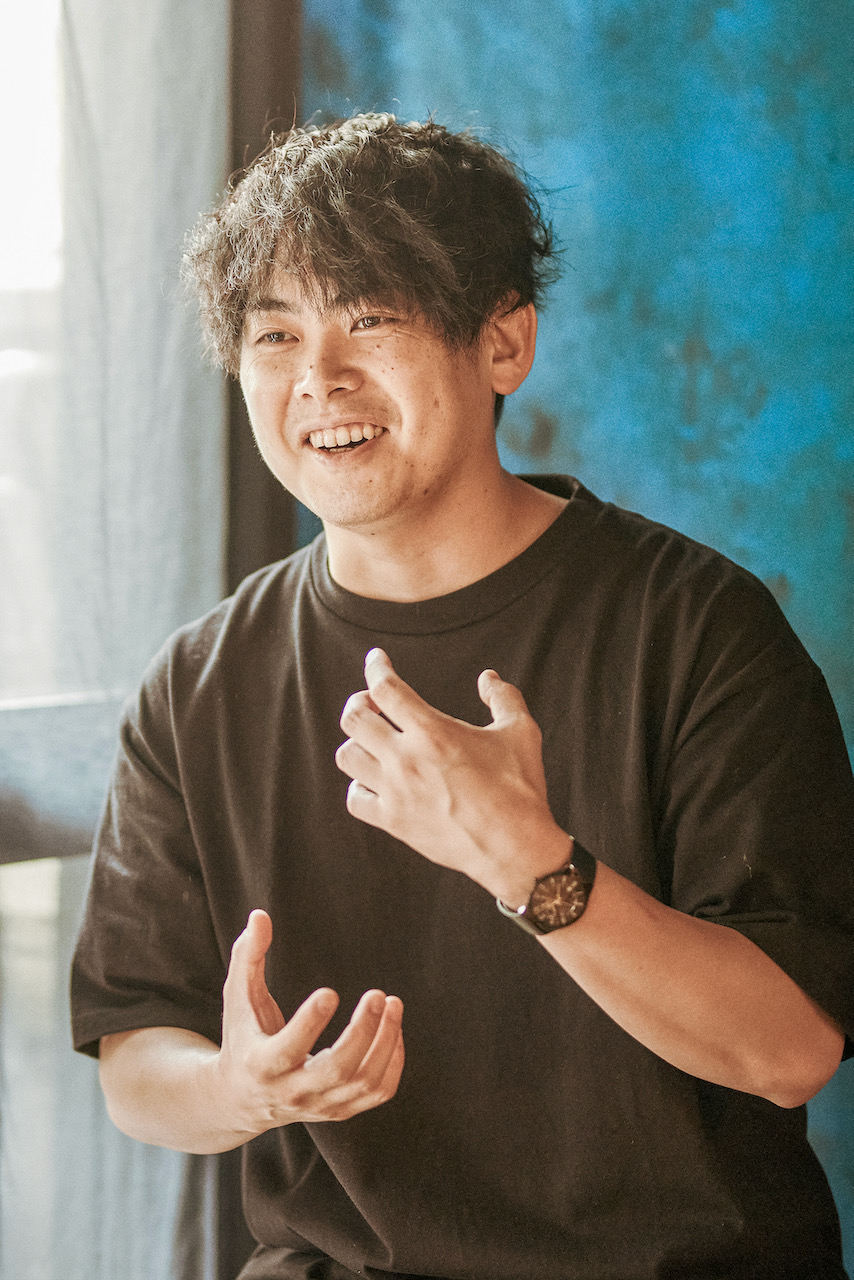
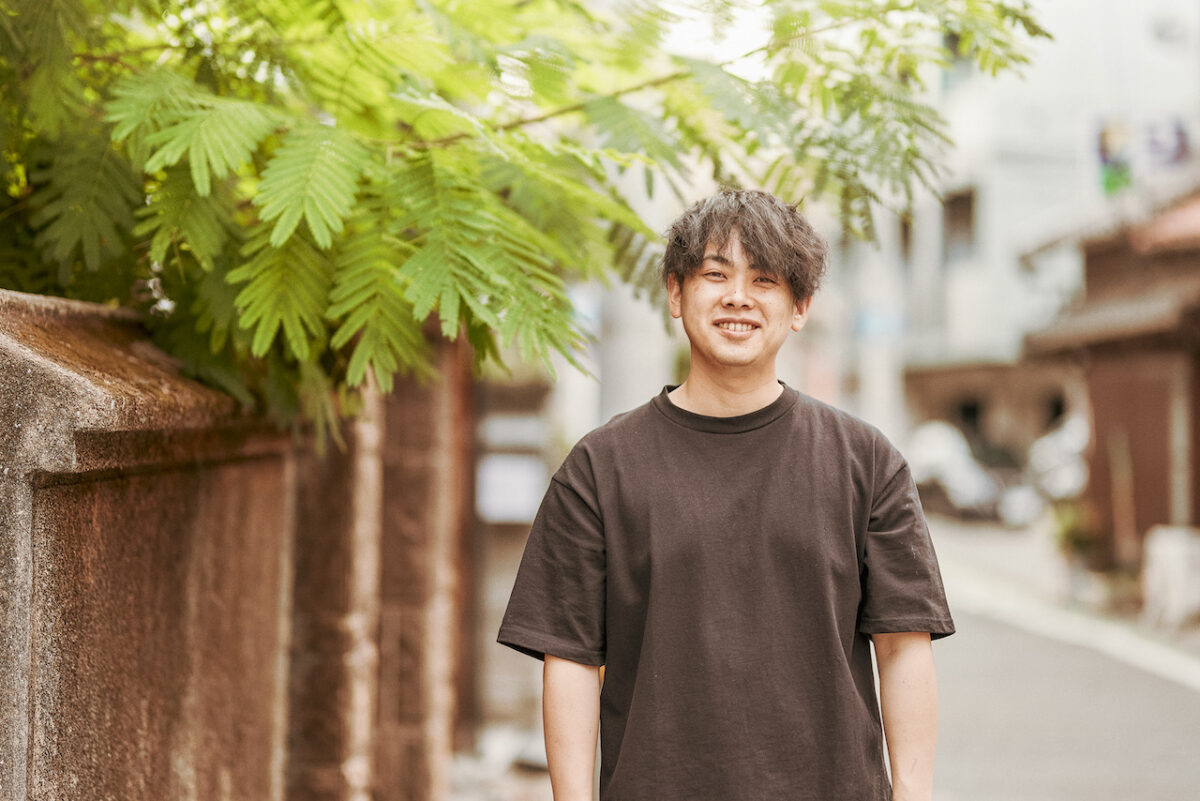
In 2019, KUROMON COFFEE opened in Fukuoka City’s Chuo Ward, in the neighborhood of Kuromon. Its owner, Yosuke Yatsuda, took the opportunity to leave his home prefecture of Miyazaki after quitting his job as a teacher and has now spent over ten years in Fukuoka and Tokyo pursuing the depths of coffee. He runs his store with a desire to make it something that blends into the lives of the local townspeople while also working as a culinary training college lecturer. We spoke to him, and he had the following to say.
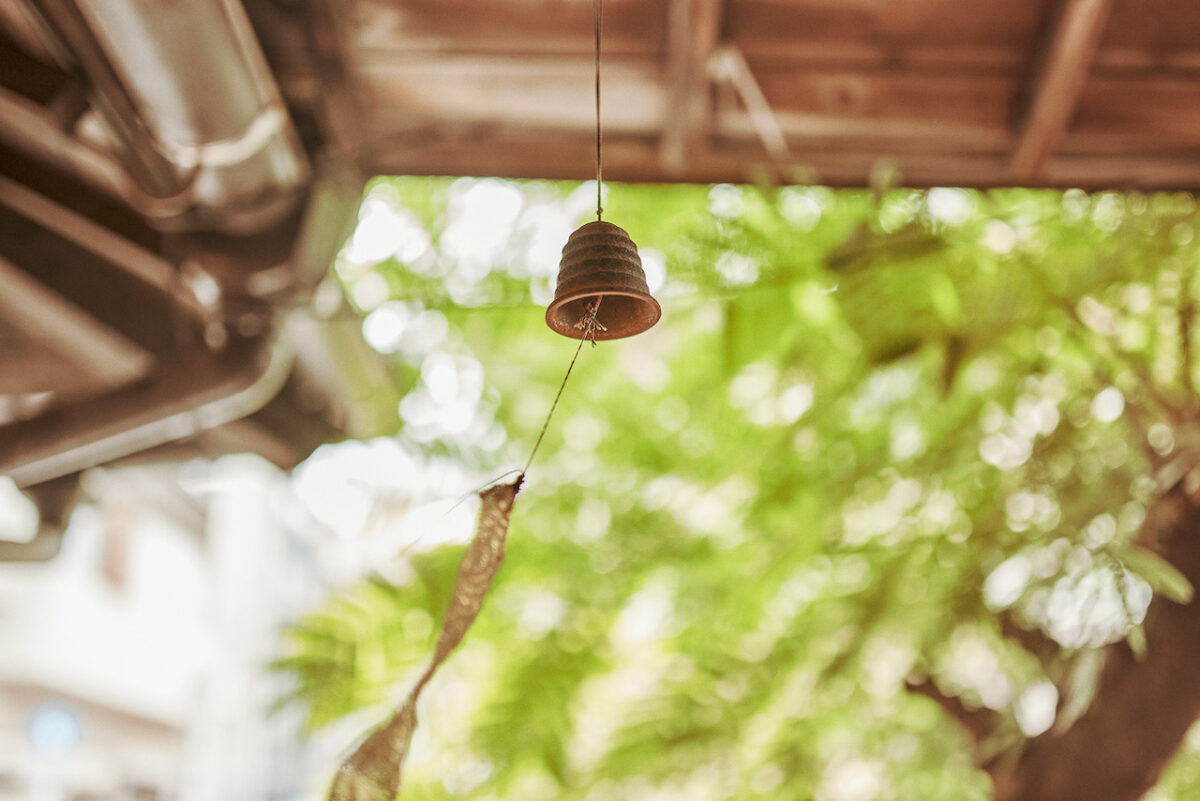
An unassertive coffee shop
Now that the world is full of coffee shops and cafes, the majority put a focus on their concept or their owner’s approach. KUROMON COFFEE, however, makes a conscious effort to not. It would be hard to imagine that it promotes its owner’s presence or ideas, given the lack of store slogan or photos of people anywhere on its official website or social media. The same could be said about the name of the store, as it simply uses the name of the neighborhood where it is located.
“I wanted to make something that blends into the scenery and life of its location. I thought it would be better to use a name that people in the town were used to hearing, rather than something that tries to awkwardly sound trendy.”
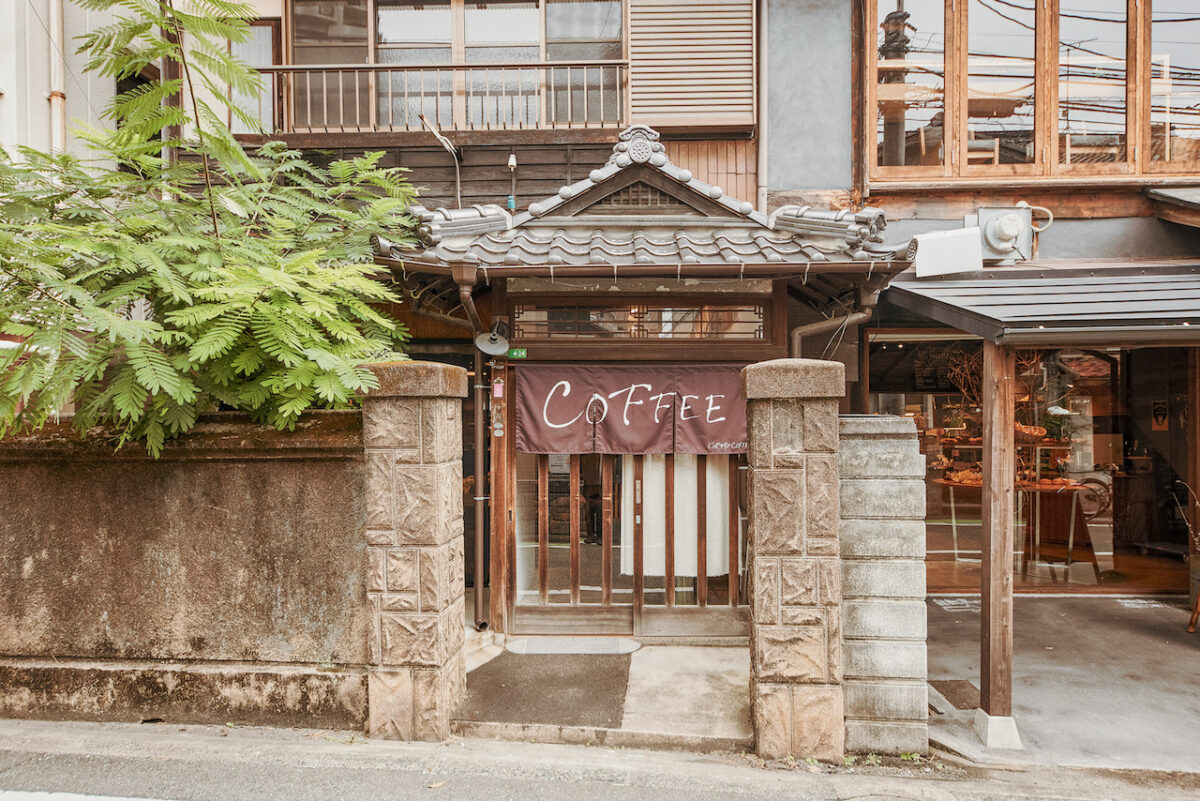
Kuromon, the location of the store that it is named after, is a residential neighborhood located in the center of Fukuoka City next to Ohori Park, a place of rest and relaxation for locals. KUROMON COFFEE came into being after renovating a house that had stood there for about ninety years. Although modernized, it still retains its old atmosphere.
“I didn’t want to take something that had been used for a long time and suddenly turn it into something new. While many customers praise the atmosphere of the store, a structure is a part of a landscape rooted in a neighborhood. The store’s atmosphere is created by the building and the history it borrows. I want to coexist with the neighborhood, not put my own ideas out on display.”
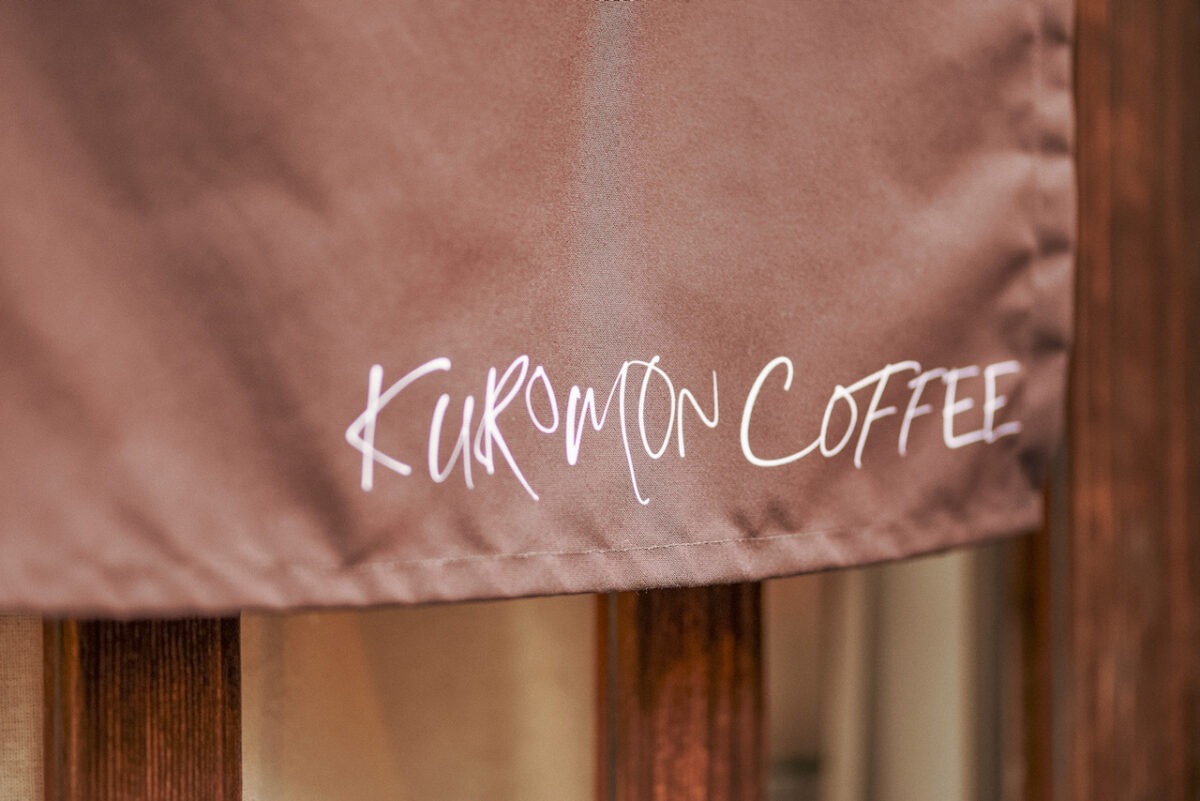
Enter through the building’s gate and you’ll notice a store curtain at the entrance that reads “Coffee.” Take a closer look and you’ll see the words “KUROMON COFFEE” written in smaller letters in the corner.
“I thought there was no need to put all kinds of meaning into the store’s name as long as it became known as a delicious coffee shop in the area. People may think it’s a picky or complicated store if I stress its concept or my own thoughts too much. I want customers to freely enjoy their coffee by clearing away those kinds of preconceptions.

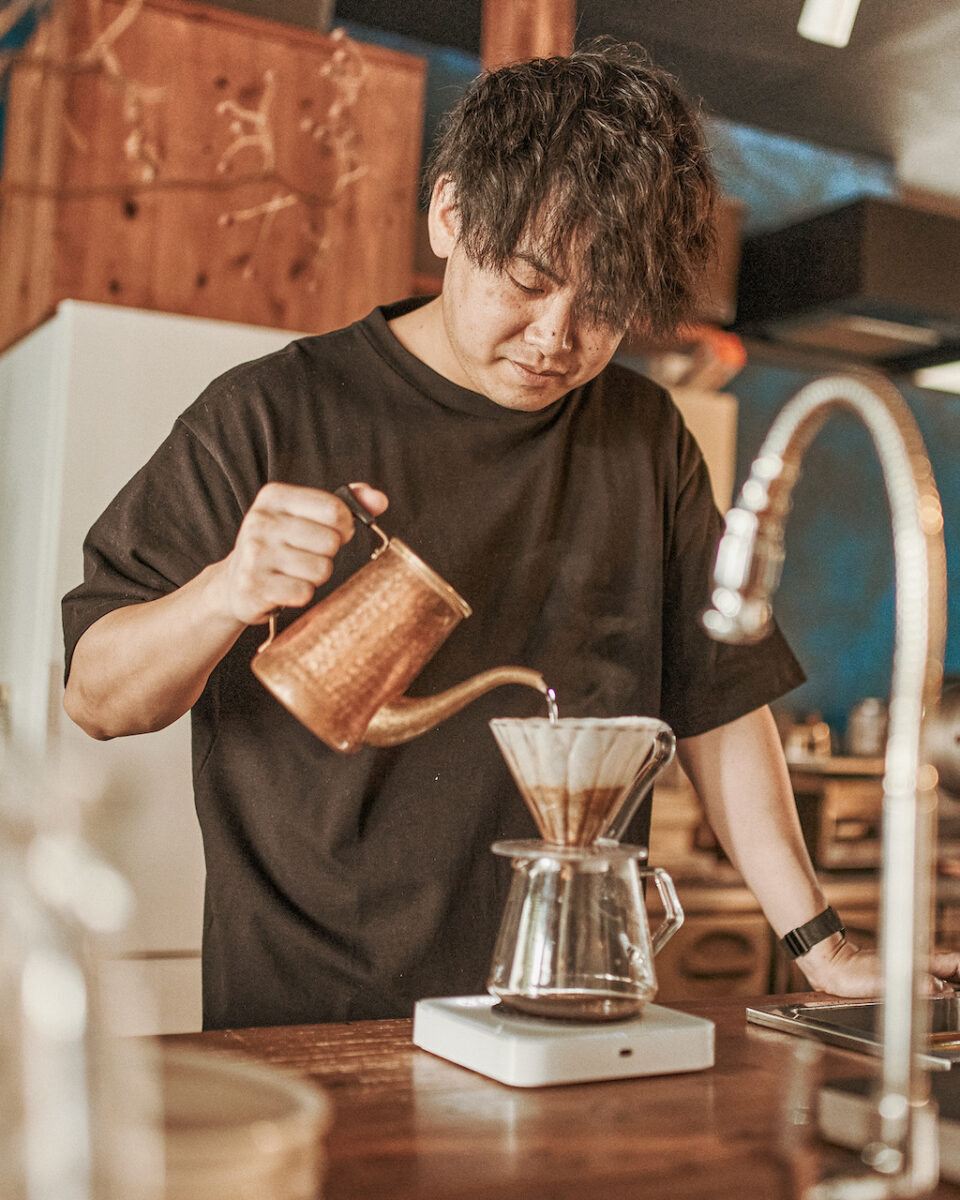
Losing his identity
While Yosuke can now call himself a coffee specialist, he worked as a teacher after graduating from university. Ever since he was a teenager, his life’s goal was to become a teacher. He had created a path for himself in order to achieve his career in teaching. After working hard to reach that goal, however, he was faced with a reality that was not what he had dreamed of.
“Schools are full of annoying social obligations and cliques. It seemed somehow wrong to do my job while having to present a false self as I was bound by all of that.”
While he soon left the world of teaching, it wasn’t easy for him to find a new goal in his life.
“I felt drained and afraid when I lost the core pillar of my life, which was becoming a teacher. It was as if I’d lived my life in order to become a teacher, so there was a time when I agonized over what to do next.”
In an attempt to persevere and find a new answer for himself, Yosuke left Miyazaki Prefecture, where he was born and raised, and moved to Fukuoka. He experienced working in many jobs such as foodservice and acting, in order to broaden his horizons, and one such job was as a part-time position at a café chain.

“Ever since I was a teacher, I’d often go to my favorite cafés on my days off. I like the comfort and the atmosphere of cafés, and I began working part-time at one in order to study that.
At the same time, I saw coffee as nothing but a tool to communicate with others. At the time, it was normal to drink bitter coffee with sugar and milk, and I didn’t think it tasted particularly good.”
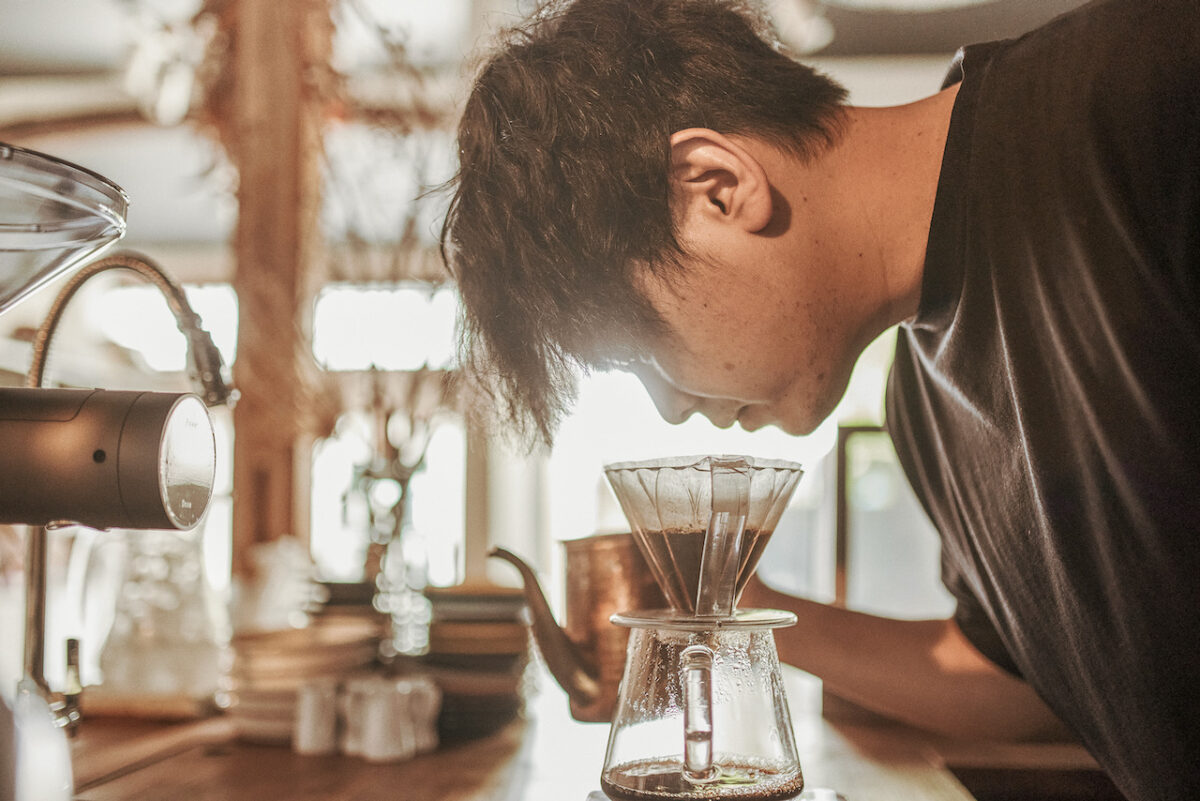
What caused him to become interested in coffee itself were study sessions held in Tokyo by the café chain that he worked at.
“I didn’t feel very positive about it at first. I had worked part-time for a while and was made to participate due to my position. As I went to the sessions once or twice a month, I began to think that I wanted to at least learn how to make good coffee if I was going to spend this time anyway. That must be when I started to be interested in what coffee is.
That said, we used fully automatic coffee machines at our store, so I didn’t have many opportunities to take the knowledge I’d gained at these study sessions and put it into practice. That’s why I began to voluntarily take part in cuppings held by Nozy Coffee and Maruyama Coffee.”
In order to seriously pursue coffee, Yosuke then quit his job at the chain where he’d worked for five years and entered into the world of specialty coffee.

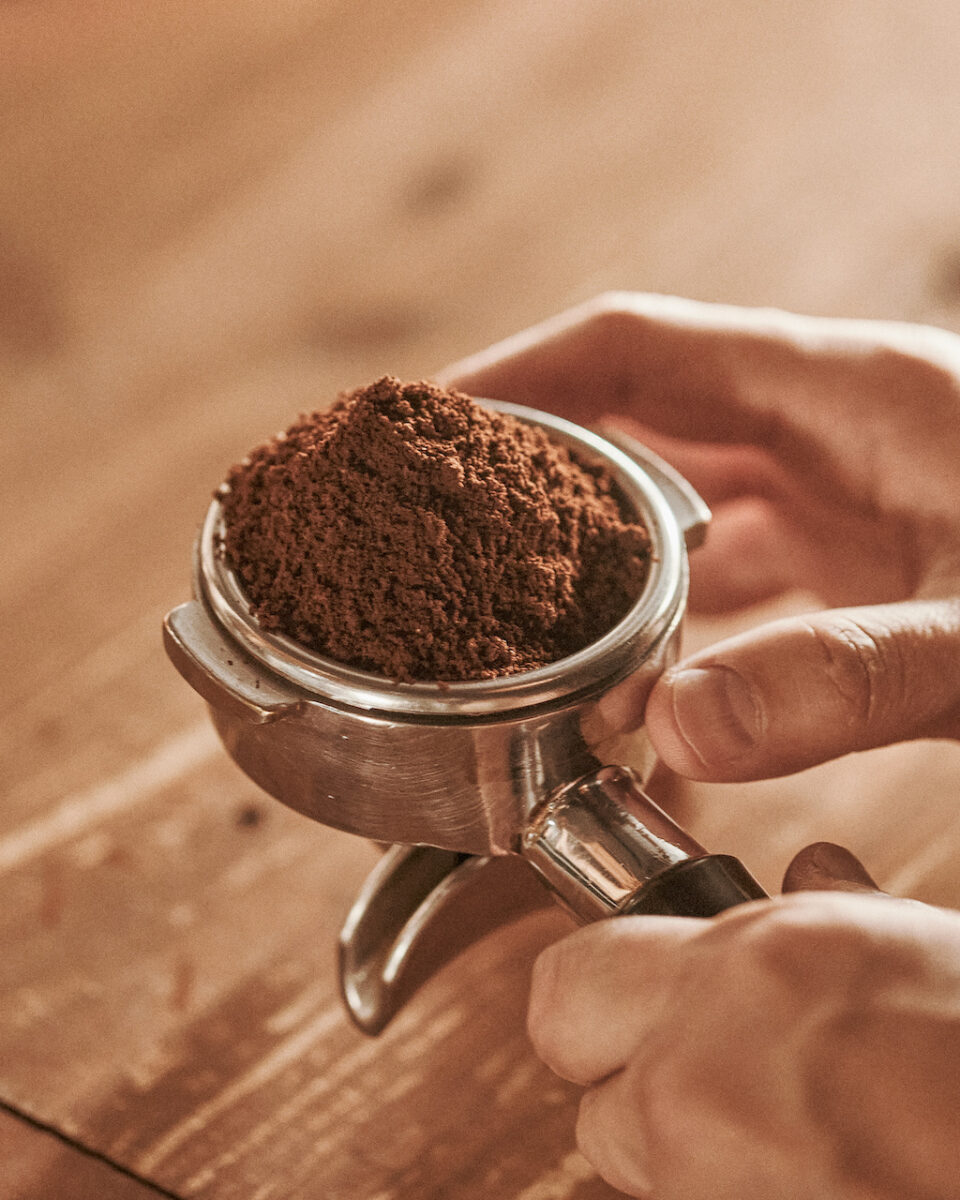
A mission of working in the world of specialty coffee
He first gained experience in this world at Amameria Espresso, located in Tokyo’s Musashi-Koyama, a coffee shop well known in the industry for nurturing many famous baristas and as a place where pioneers of the industry would gather. However, Yosuke says it was the store’s customer service that drew him in.
“They approach each customer as an individual, talking to them to learn about their tastes, what caused them to come to the store, and so on. They spend as much time as they need in order to present someone with what’s best for them. No other store has felt as ready to do everything possible for their customers.”
For example, he says, if they learn about a coffee shop a customer frequents through a conversation, they would take that store’s roast levels and so on into consideration as they pieced together a customer’s preferences, as the same coffee will taste different depending on the store.
“We didn’t want customers to drink our coffee and feel let down. Even if a customer orders something, we might propose a different coffee that’s closer to what they expect, and at times we’d even remake a cup. We did this because we had a responsibility as people who wanted to grow the industry to accurately convey just how good specialty coffee can taste.”

At Amameria Espresso, Yosuke gained a broad base of knowledge about brewing coffee, coffee itself, and roasting, even going on to enter competitions. He says that at one, he saw something particularly exciting.
“In the midst of frequent victories by people from famous stores, someone unknown made it to the finals and was praised. It was incredibly encouraging to learn there were people still relatively obscure to the world who could make delicious coffee. What makes this world interesting is that you can have these moving experiences that overturn your preconceptions, and I think it’s our mission to tell others about good coffee and good shops.
While I think customers also use fame and reputation as criteria when choosing coffee shops, those too can turn into preconceived notions. Even a famous store can raise a customer’s expectations too high and not be fairly judged because of that, while stores with no social media presence or who don’t photograph well won’t be noticed even if they have good coffee. A store’s own messaging can create a hurdle within a customer’s mind in the form of a belief that they don’t know much about coffee themselves. You truly don’t need to think that, though. You just have to drink the coffee you’re served, and if it tastes good, that’s enough.”

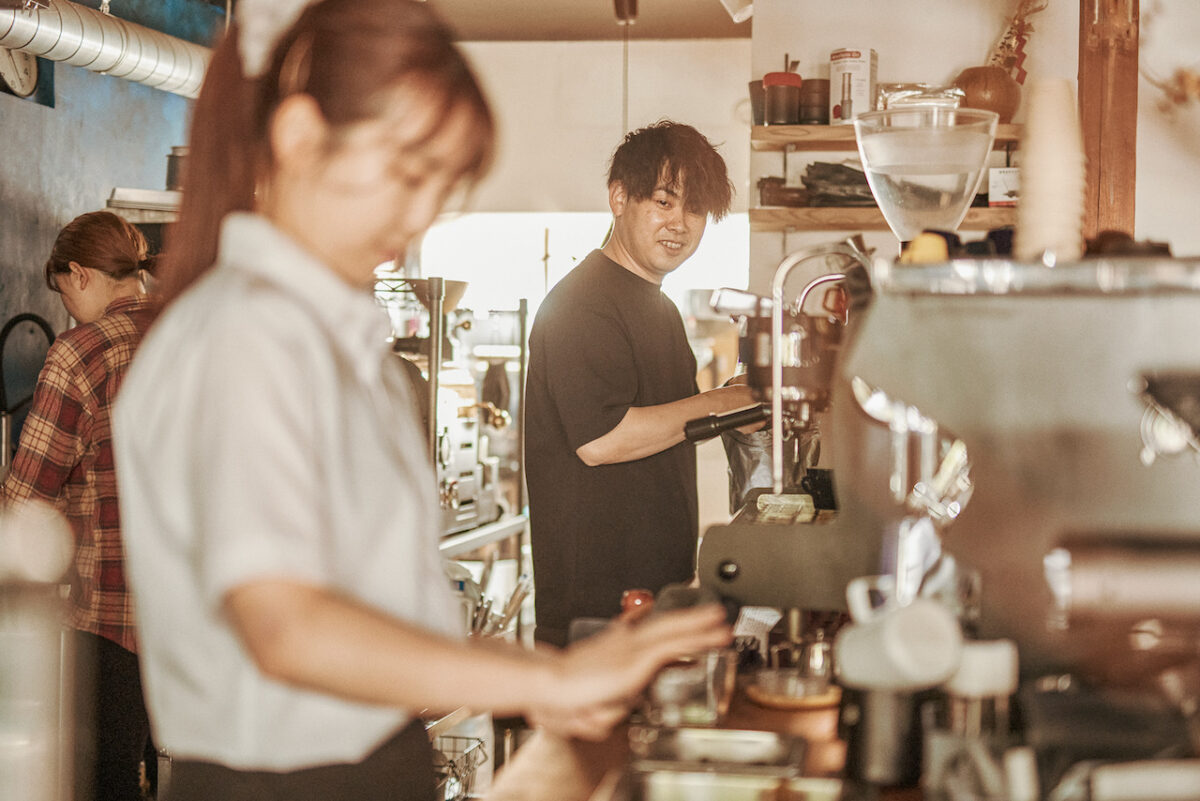
A desire to make coffee a part of daily life
Drawing on his experience at Amameria Espresso, Yosuke took the leap in 2015 and opened his own store in Fukuoka. After moving within the city twice, in 2019 he began operating KUROMON COFFEE in Kuromon.
“There are a lot of shy people in Fukuoka who have trouble coming out and saying what they want you to know. Instead, they begin by enjoying everyday conversations. If you do that for long enough, a customer will eventually start speaking to you more and more, allowing you to understand their preferences. If they get to a point where they let me pick their coffee for them, it makes me happy to know that I’m providing them with cups they can enjoy, and it makes me realize how important it is to get to know a customer over a long period of time.”
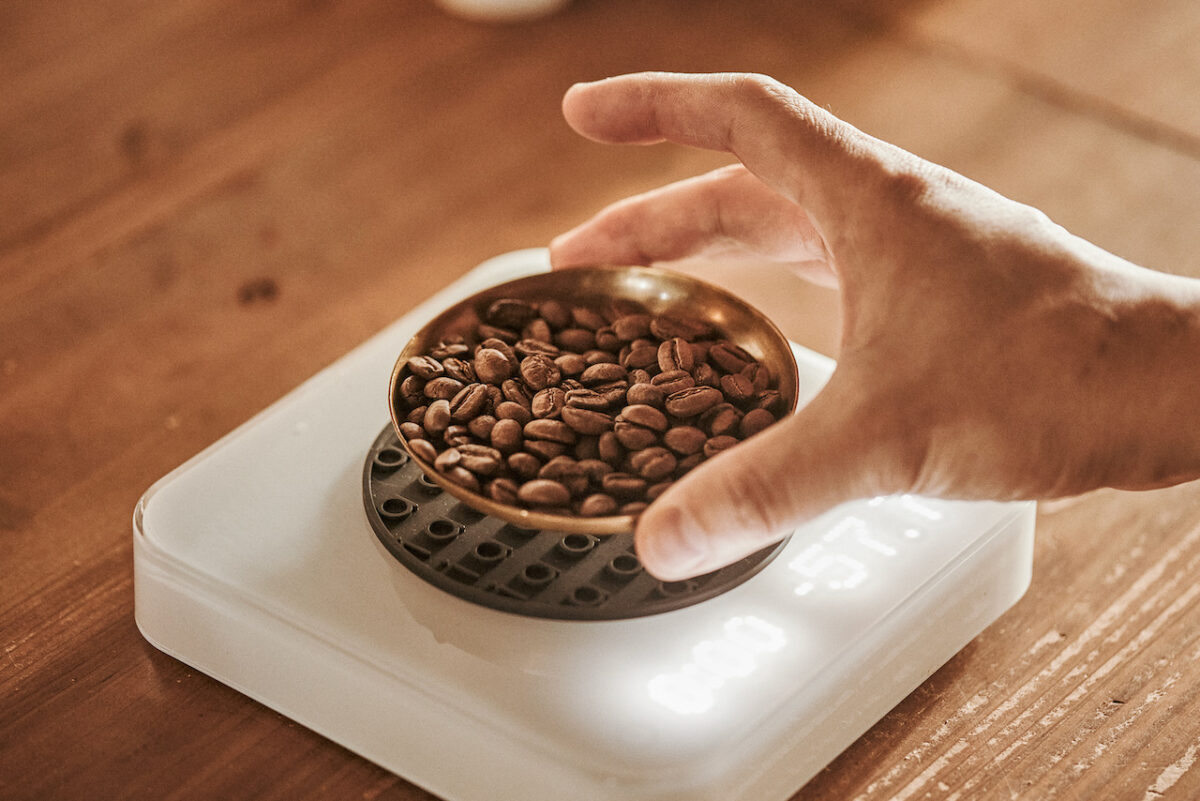
The personality of Fukuoka’s residents isn’t the only difference between Fukuoka and Tokyo. Yosuke says the city also has its own unique coffee culture.
“It’s hard to say that specialty coffee is a natural part of daily life for people in Fukuoka. While it’s recognized, they may only know famous areas, and the habit of making a casual cup of coffee at home hasn’t taken root either. Only passionate coffee fans consume a lot of it, so my hope is to make drinking specialty coffee a regular part of life and grow the number of coffee lovers as a result. That’s why if we get a customer who has come a long way from home, I’ll sometimes recommend a coffee shop close to where they live. It’s a waste if they stay unaware of a good shop, and I want to help make coffee a part of their lifestyle in any little way.”
Yosuke plans to open a second KUROMON COFFEE next May (in 2022) that primarily sells beans. His desire to coexist with a town while making coffee a part of the daily life of its people is steadily taking shape.

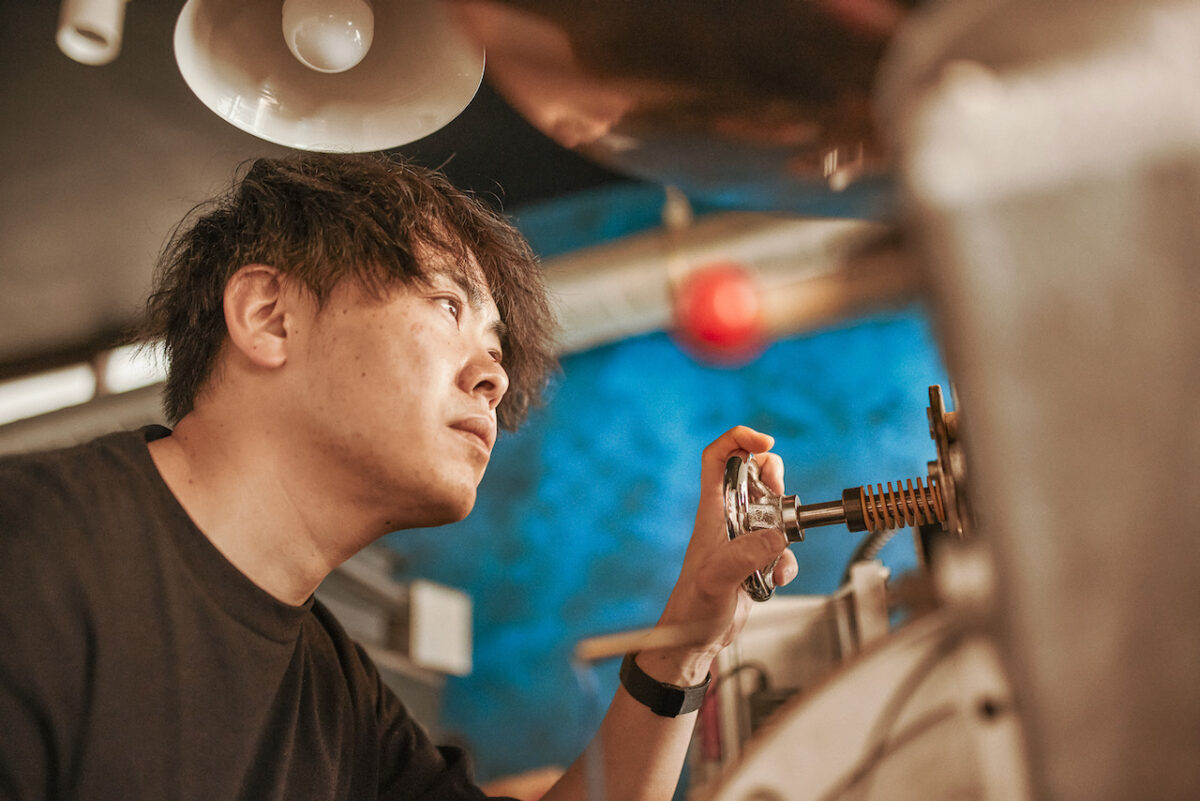
Passing on a lesson learned through coffee: You don’t have to be confined
“I think I’m more able to think about things in a flexible way ever since I encountered coffee.”
When Yosuke quit his job as a teacher, he found it difficult to enjoy life, but now, he focuses on enjoying the life he leads. In addition to running his store, he also works as a lecturer for a barista course at a culinary training college. For him, it’s not just about teaching specialized knowledge about coffee when he instructs his 18 and 19-year-old students who hope to someday become baristas and chefs.
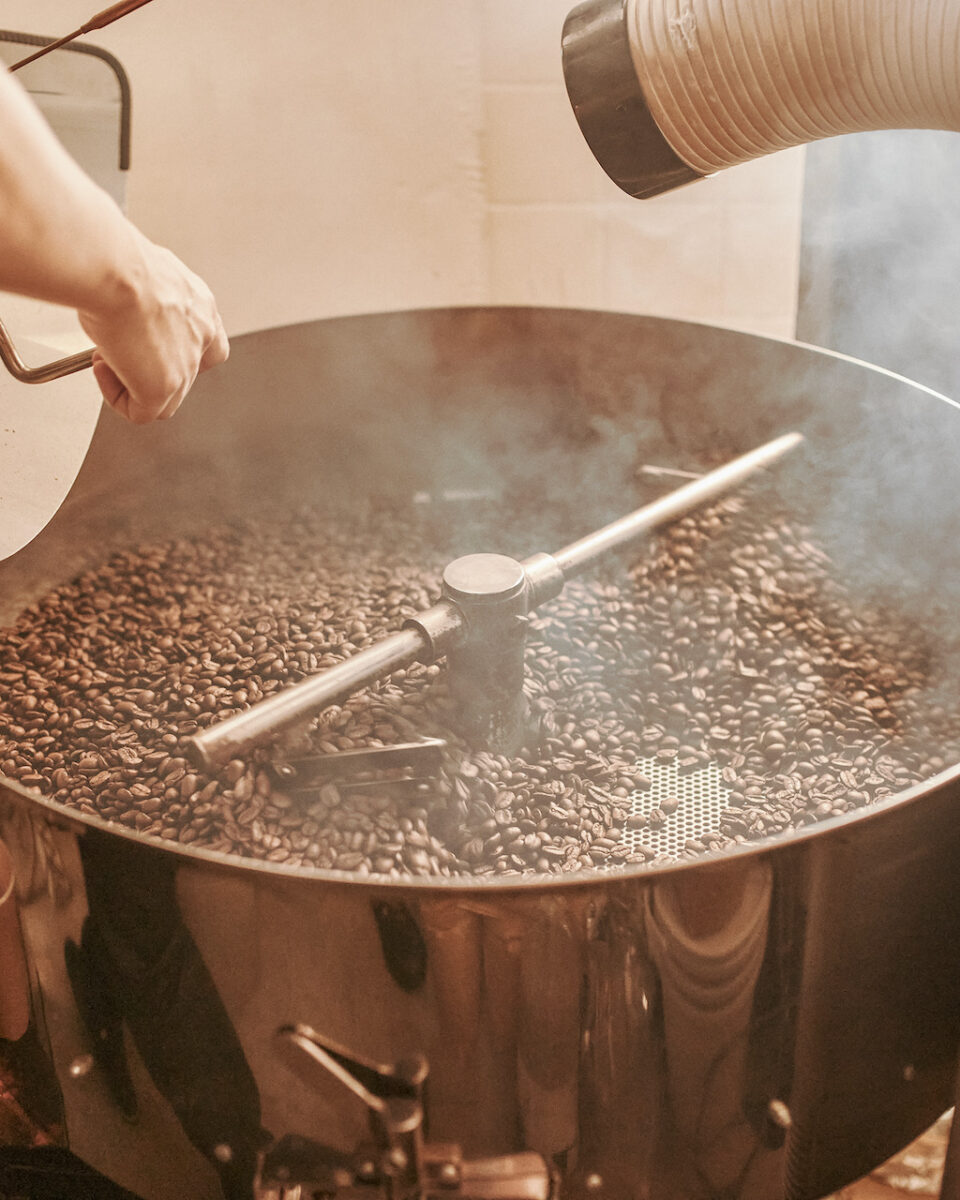
“They’re at an age where they face many difficulties and fears as their career comes together. They may be unable to find what they want to do because they’re bound by what their parents say or because of their preconceptions, and even if they are able to work where they imagined themselves, they might struggle with the gap between their dreams and reality. I tell them that if they find themselves with nowhere to go like that, it’s okay to stop for a moment or even take a step back in order to look for an easier or a more fun path for themselves.
When they look back on their lives, I want them to focus more on whether or not they had fun, not on what they did. I tell them this because I wish there was someone there to offer me another option when I was struggling after quitting my job as a teacher. Now, though, when I look at teachers surrounded by students, I realize they can’t say something that irresponsible, given their position as instructors. I think it’s something I can only do as a lecturer who exists outside of the organization, as a kind of senior to them in their line of work. I hope it resonates with some of them.”
As both a lecturer and a coffee shop owner, Yosuke is open with his thoughts. He must have coffee to thank for becoming able to live his life without being tied down by a single title.
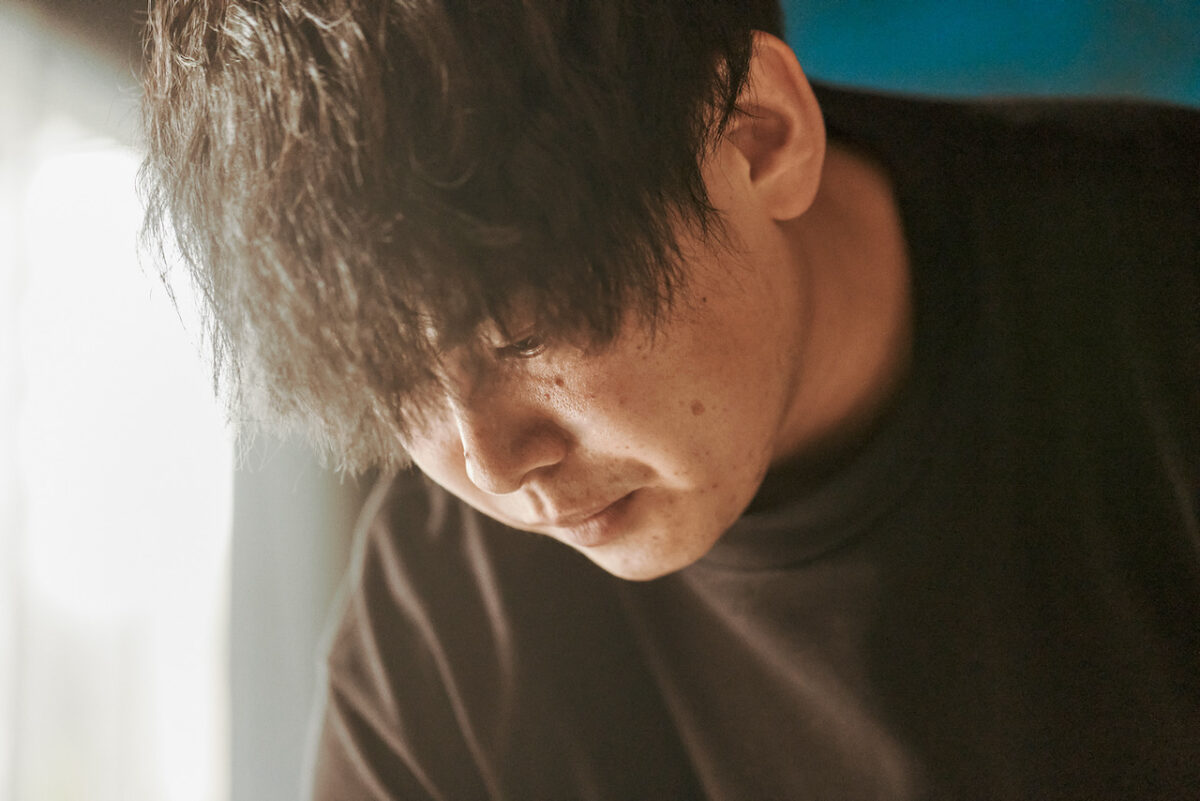
“I thought it was important to live my life according to theory when I was young, but I came to realize that’s not true. It turns out that in the world of coffee, there are plenty of answers you can find when you go beyond the limits that have been set out. There are still things we’ve yet to discover, and the world gets a little bigger every time we do find something new.”
It’s fine to be more free and break the mold. Yasuda learned that through coffee, and it’s with coffee that he continues to lead people’s lives toward greater freedom.
Originally written in Japanese by Saki Ueno
Edited by Tatsuya Nakamichi
Photo by Kenichi Aikawa
MY FAVORITE COFFEE
Coffee I drink on my days off as I enjoy a conversation with someone at a store, run by an acquaintance or a close friend. Drinking coffee at my own store or at home always ends up becoming an extension of my work, filling my head with unnecessary thoughts like how I can't afford to mess up. Bliss for me is relaxing and drinking coffee in an enjoyable location without having to think about anything difficult.
